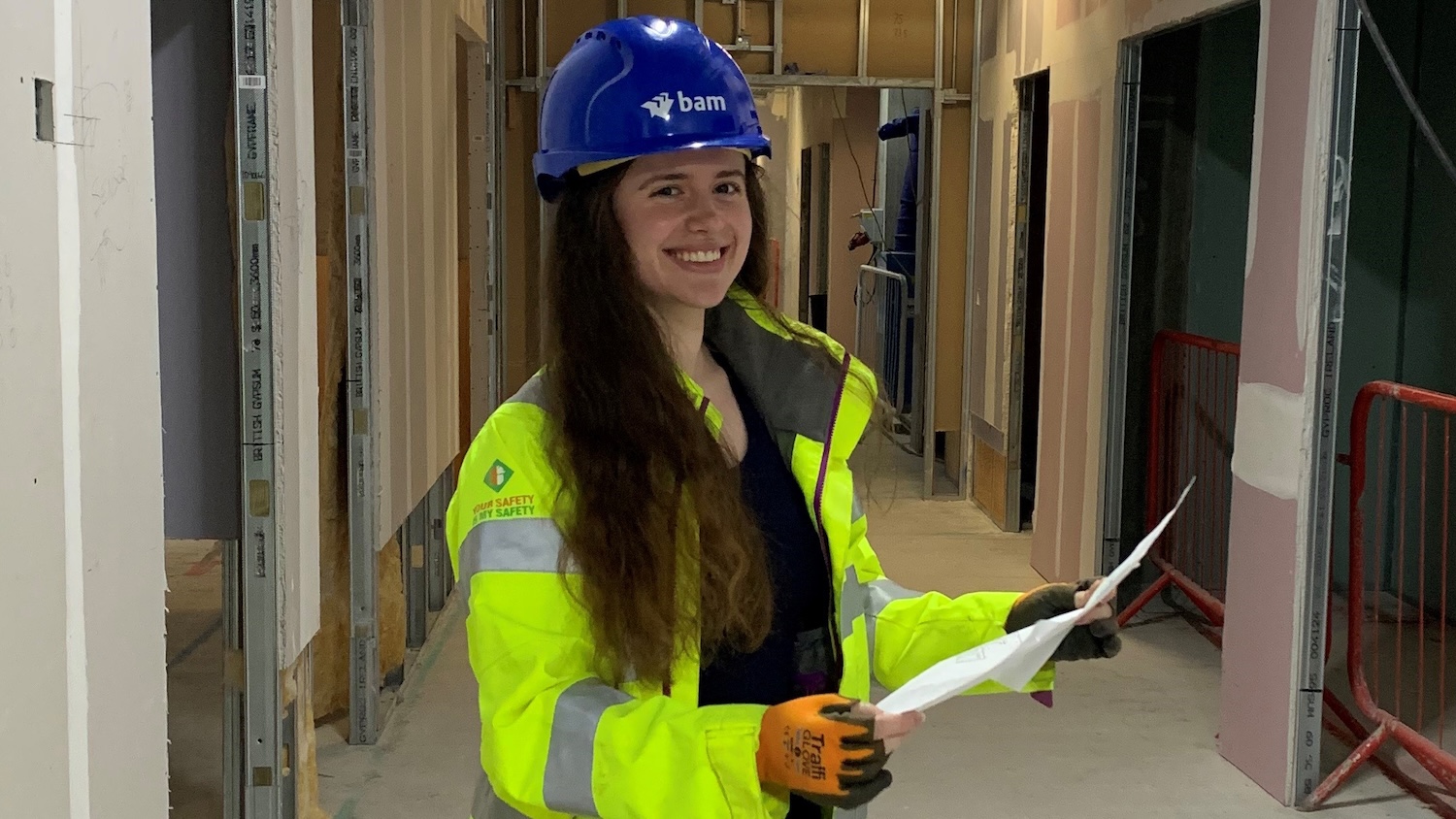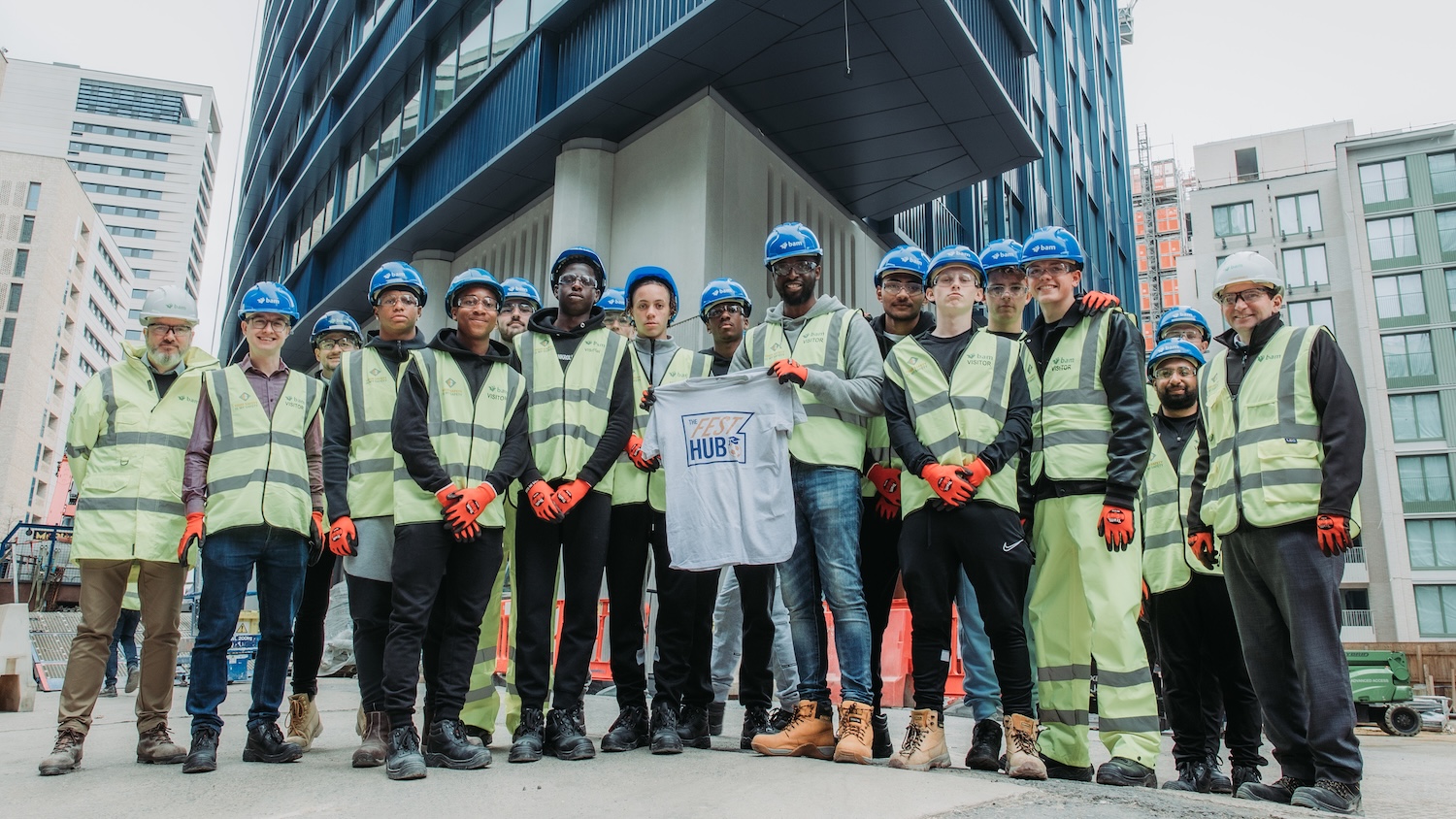
‘Inclusion shouldn’t be about unfair reward’
Diversity champion Amos Simbo tells CIOB People what his OBE means to him – and why inclusivity is the key to progress in construction
When Amos Simbo received the news that he had been awarded an OBE for his contributions to the construction industry and diversity, it took a moment for the recognition to sink in.
"I’ve never received this kind of award before, so I wasn’t quite sure how to react,” he says. “But I’ll say it was a good feeling, knowing that the work we are doing across the sector is being recognised."
For Simbo, founder of the BPIC Network, an organisation dedicated to improving diversity and inclusion in the built environment, this award is more than just a personal achievement.
“Hopefully, we can inspire other people to know about our sector, what we’re doing, and the vast spectrum of opportunities it offers,” he tells CIOB People.
“It’s an industry where you can be very successful and feel included as part of something bigger – where people are building communities.”
Construction sector sidelined
Despite its crucial role in the economy and society, construction is often sidelined in broader public discussions – a reality reflected in the New Year Honours List.
Simbo was one of only two figures among the 1,203 people recognised in the 2025 New Year Honours List to receive an award for services to the construction industry.
The other was Alexander (Sandy) Adam, founder and chair of Scottish housebuilder Springfield Properties.

We have to go beyond simply recruiting diverse talent and make sure they feel welcome, valued and given fair opportunities for advancement. Otherwise, we’re just ticking boxes without real impact
“That’s something that needs to be addressed, both by those issuing the awards and by the industry itself,” Simbo adds.
“Construction bodies need to be more accessible and recognise a broader range of contributions.
“Too often, they can become like private members clubs, where only those within certain circles get put forward. If the nomination process were more open, we’d see more champions being recognised.”
Construction is integral to every major infrastructure project, says Simbo, from housing developments to nuclear facilities and data centres. Yet it rarely gets the same level of attention as the financial or tech industries.
"Construction is an enabler for all of these ambitions, yet it often doesn’t make the headlines the same way. That needs to change."
Beyond box-ticking
Since founding the BPIC Network in 2019, Simbo has witnessed a shift in attitudes toward diversity and inclusion. But he acknowledges that there is still significant work to be done.
“We’ve seen good engagement from across the sector,” Simbo notes. “However, real progress depends on leadership being comfortable stating where their values lie.
“Leaders should be saying: ‘This is what we believe in, this is what we’re doing’, and sticking to it – not just adapting based on external pressures like project bids or client demands.”
One of the biggest obstacles to meaningful change is inconsistency, he adds. “If businesses keep shifting their values based on external factors, they end up damaging themselves.”
To attract and retain talent, he says, construction must become “genuinely attractive”, leaving politics and trends aside – “just an industry that people want to be part of”.
He adds: “Right now, too many people in the sector wouldn’t want their own children to follow in their footsteps. That tells you there’s still work to do.”
Simbo also points to issues on job sites and within office environments, where people from minority ethnic backgrounds are often excluded.
“We have to go beyond simply recruiting diverse talent and make sure they feel welcome, valued and given fair opportunities for advancement,” he says. “Otherwise, we’re just ticking boxes without real impact."
Diversity and inclusion tools
To achieve real progress, the BPIC Network works closely with industry leaders, offering them tools to embed meaningful diversity and inclusion policies.
Simbo explains that BPIC provides a space where construction decision-makers can learn from each other.
The Network will be launching its first industry-wide report this autumn, which will include a roundtable discussion with CEOs and senior directors.

Beyond industry engagement, the BPIC Network is also working to support small businesses.
“A big chunk of construction’s supply chain consists of small firms, and they often lack the resources to implement inclusion strategies,” Simbo says.
“We’re helping them with policies, best practices and guidance to ensure that even smaller workplaces feel welcoming and supportive.”
Optimistic about the future
Asked whether the backlash against diversity and inclusion policies – particularly in the US, where President Donald Trump has pledged to roll back various DEI and LGBTQ+ policies – could influence UK construction, Simbo is pragmatic.
“Inclusion should be about everybody. It shouldn’t be about unfair reward or putting people in places where they shouldn’t be,” he says.
“The problem is that, in some cases, inclusion efforts have led to exclusion, which creates division. But at its core, inclusion is about ensuring opportunities for all, not about taking them away from others.”
Simbo is confident that construction companies in the UK will remain committed to inclusion efforts despite political shifts.
Businesses need people to operate. We’re seeing more companies retain their common sense and stick to their values, focusing on what’s right for their workforce rather than reacting to political noise
“Businesses need people to operate. We’re seeing more companies retain their common sense and stick to their values, focusing on what’s right for their workforce rather than reacting to political noise,” he adds.
For those from minority ethnic backgrounds considering a career in construction, Simbo’s message is clear: “You’re not on your own. The industry is full of opportunities, and organisations like BPIC exist to support you.”
Awareness of opportunities
Reflecting on his own career journey, Simbo wishes he had known earlier just how vast the industry is.
“When I started, I was just focused on the company I was at. I didn’t realise the range of opportunities out there,” he recalls.
“My advice to young professionals is to take advantage of every experience available to you. Don’t turn down opportunities just because they don’t seem immediately relevant.”
He also emphasises the importance of confidence. “Construction is a people industry. If you’re confident and put yourself out there, you’ll find your place,” he says.
“Many leave because they feel unseen or that they’re not progressing. That’s something we’re working to change.”
As BPIC evolves from a network into an industry body, Simbo remains optimistic about the future.
“We never set out to become an industry body, but it’s clear that’s where we need to be to create real impact. Businesses are responding positively, and we’re seeing more engagement than ever."
For Simbo, the OBE is not just personal recognition; it’s a sign that the construction industry’s role in shaping a better, more inclusive future is finally being acknowledged.
But, as he makes clear, the work is far from over.






